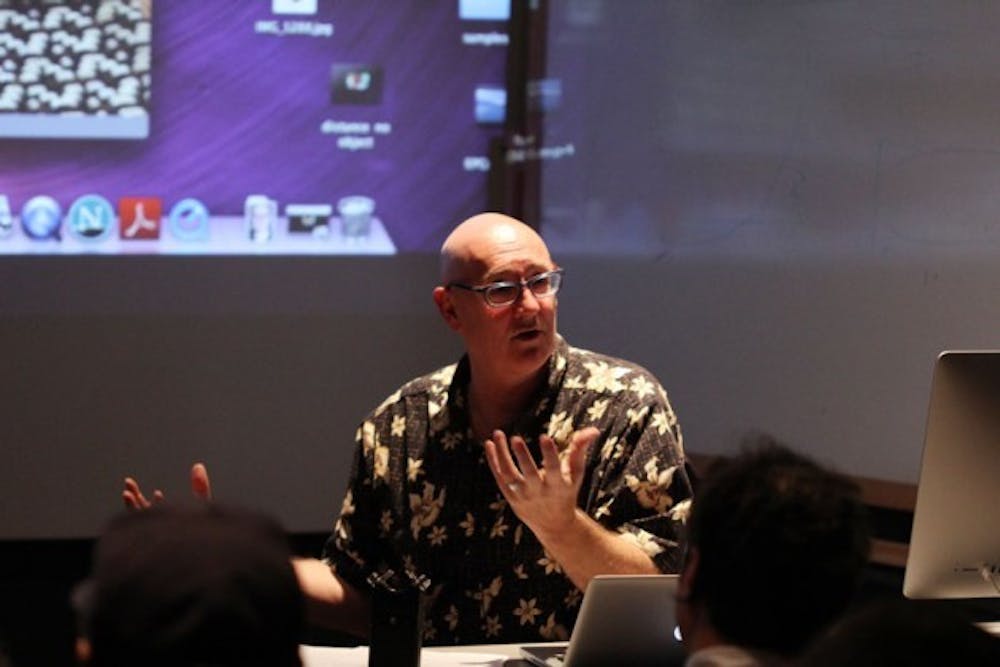When Loss Glazier created the Electronic Poetry Center in 1995, he had no idea that it would still exist today, let alone be an epicenter of poetic evolution and teaching.
“I started the Electronic Poetry Center before Facebook and Twitter [existed and] it was one of the biggest websites,” said Glazier, the director of the EPC, E-Poetry president and artistic director and Department of Media Studies professor. “The way it’s exceeded my expectations is that it [has] remained [one of] the largest and most used sites … No one has surpassed it, not even organizations with a lot of funding.”
The Electronic Poetry Center, or EPC, is celebrating 20 years of shared ideas, creative writing and success in being a growing online community for poets all over the world. Glazier created EPC@20 as a celebration of the website’s success.
The event is taking place over two days, starting on Thursday Sept. 11 with speeches and readings in the Center for the Arts during the day and evening performances at the Burchfield Penny Art Center near Buffalo State College.
The EPC is a website designed to make a wide range of resources centered on innovated poetry, new media writer and literally programs available to the public.
The E-poetry and Author libraries are intended for personal use, research and teaching. All texts on the website have been approved by its producers and website is sponsored by the media studies department.
Contributors to the EPC were flown in from all over the country to speak Thursday and Friday.
“It’s nice to be part of a community,” Cris Cheek, an English professor at Miami University in Oxford, Ohio said. “It’s a network; you make connections and look at work you’re interested in.”
The event began at 1 p.m. Thursday with an introduction by Steve McCaffery, an English professor at UB and the David Grey Chair of Poetry and Letters. He spoke about the significance of anniversaries and how celebrating a specific date is part of human nature.
Danny Snelson, a graduate student at the University of Pennsylvania and Laura Shackelford, an English professor at RIT spoke after McCaffery.
Snelson discussed how the EPC fit into his dissertation, adding information about portions of the EPC that no longer technically exist, but that can still be found.
Shackelford on the other shared her thoughts on poetry as a “living process” that evolves with technology and current events
“I think the EPC is extremely significant,” McCaffery said. “It’s nice and hopefully [the event will give the EPC a] sense that as well as disseminating archival material, it is also a center … of living poetics. I think that social dimension and the socialization of language is very important and EPC has played an important role in that.”
Today’s events continued through the afternoon with multiple presenters including Elizabeth Willis and one by Glazier himself. Presentations and performances went into the evening at the Burchfield Penny Arts Center and will resume Friday afternoon at 1 p.m. in the CFA.
But according to Glazier, Thursday was the smaller and more intimate of the two days with Friday’s events taking place in a larger screening room for bigger presentations.
He added that the EPC “was one of the earliest websites at SUNY Buffalo, and Buffalo has a tradition of innovative poetry and a poetic community that really makes it extraordinary.”
Glazier believes the site has become so successful because it was created in the spirit of caring for other people and making literature available to everyone.
email: arts@ubspectrum.com





